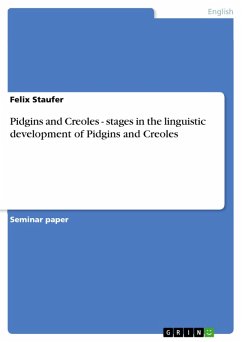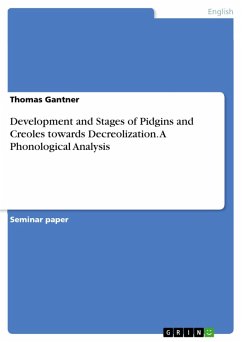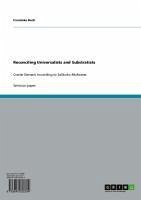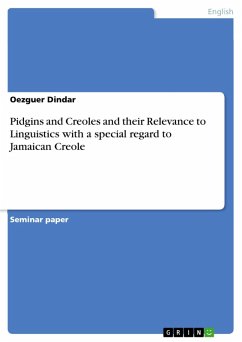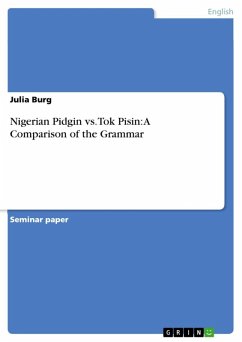Seminar paper from the year 2005 in the subject American Studies - Linguistics, grade: 2,0, University of Regensburg (Institut für Amerikanistik und Anglistik,Universität Regensburg), course: PS English as a Global Language, language: English, abstract: To offer a good reason for talking about the stages in the linguistic development of Pidgins and Creoles one should take a close look at the following statement: I think it can easily be argued that the fundamental problem for linguistic theory is to understand...how linguistic structures evolve, come into being and change into new (sub) systems and thereby to learn what the true nature of language is. Talking about the different stages to elucidate, "the true nature of language" requires the knowledge of some basic information and definitions, especially of the terms Pidgin and Creole: Pidgins are examples of partially targeted second language learning and second language creation, developing from simpler to more complex systems as communicative requirements become more demanding. Pidgin languages by definition have no native speakers - they are social rather than individual solutions - and hence are characterized by norms of acceptability. But these definitions aren't sufficient for taking a critical look at Pidgins and Creoles. Besides several minor problems, there are two major or main problems that are fundamental to this topic. The first one is the continuing lack of longitudinal studies. This lack requires the reconstruction of "non-documented or ill-documented aspects of language development" (cf. Mühlhäusler, 1997). This reconstruction is mostly based on the idea of an uniformitarian development of language. But just like history is no steady development in one direction, the development of language isn't either. The attempts of reconstruction do not take into consideration discontinuities in the development of language including progressive and regressive phases. The second major or main problem is that one has to make some concessions. "These include separating the dimensions of restructuring and development, in spite of the fact that actual developments are probably more realistically described as a product of these two factors.". As the development of Pidgins and Creoles is such a complex topic, I will first of all elucidate the sociohistorical context of Pidgins and Creoles and then go on with concentrating mainly on the development of the phonology during the different stages.
Dieser Download kann aus rechtlichen Gründen nur mit Rechnungsadresse in A, B, BG, CY, CZ, D, DK, EW, E, FIN, F, GR, HR, H, IRL, I, LT, L, LR, M, NL, PL, P, R, S, SLO, SK ausgeliefert werden.

